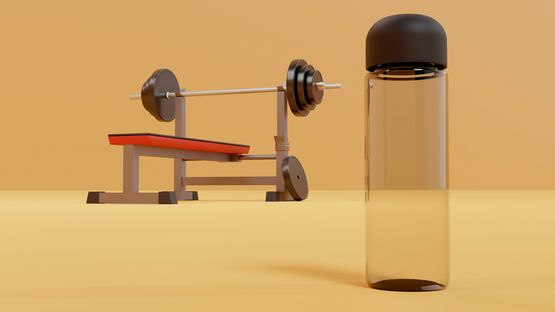Steroids are synthetic substances that mimic the effects of the male hormone testosterone. They are widely known for their ability to enhance physical performance and muscle growth, which has led to their use in various fields, including medicine and athletics. However, the use of steroids carries significant health risks and ethical considerations, particularly in sports.
What Are Steroids?
Steroids can be categorized into two main types:
- Anabolic steroids: These are used primarily for muscle building and enhancing athletic performance.
- Corticosteroids: Often prescribed by doctors, these help reduce inflammation and treat various medical conditions.
How Do Anabolic Steroids Work?
Anabolic steroids work by increasing protein synthesis within cells, leading to a buildup of cellular tissue, especially in muscles. They also promote the development of secondary sexual characteristics associated with male puberty, such as increased body hair, deepened voice, and enhanced libido.
Benefits of Steroid Use
Despite the potential risks, many athletes and bodybuilders turn to anabolic steroids for several reasons:
- Increased Muscle Mass: Steroids can lead to significant gains in muscle size and strength.
- Improved Recovery Time: Users often report quicker recovery from strenuous workouts, allowing for more frequent training sessions.
- Enhanced Athletic Performance: Many athletes find they can perform at higher levels due to increased stamina and endurance.
Steroids are commonly used in bodybuilding to help athletes increase muscle mass and strength. If you are looking for high-quality steroids, visit https://anabolicsteroids-usa.com/ for a wide selection of products to help you achieve your fitness goals.
The Risks of Steroid Use
While the benefits might seem appealing, the use of anabolic steroids is fraught with risks and potential side effects:
- Physical Side Effects: These can include acne, hair loss, liver damage, and cardiovascular issues such as high blood pressure and increased cholesterol levels.
- Mental Health Effects: Users may experience mood swings, aggression, and other psychological issues, often referred to as “roid rage.”
- Addiction: Some individuals may develop a dependence on steroids, leading to withdrawal symptoms when not using them.
Long-term Consequences
The long-term effects of steroid use can be severe and sometimes irreversible. Conditions such as testicular shrinkage, infertility, and an increased risk of certain cancers have been observed in prolonged users. Women may experience masculinization, which includes voice deepening and changes in menstrual cycles.
The Legal Aspect of Steroids
The legality of steroids varies worldwide. In many countries, including the United States, anabolic steroids are classified as controlled substances, meaning they can only be obtained legally via prescription. The illegal sale and distribution of these drugs can result in severe penalties.
Alternatives to Steroids
For those looking to enhance their athletic performance or physique without the associated risks of steroids, there are safer alternatives:

- Natural Supplements: Products like protein powders, creatine, and branched-chain amino acids (BCAAs) can support muscle growth and recovery.
- Proper Nutrition: A well-balanced diet rich in proteins, healthy fats, and carbohydrates can provide the nutrients necessary for muscle development.
- Strength Training: A consistent workout regimen tailored to individual goals can yield substantial results over time.
Conclusion
Steroids can offer benefits in terms of muscle growth and athletic performance but come with considerable risks that can affect both physical and mental health. It’s crucial for anyone considering their use to weigh these factors carefully and consult with a healthcare professional. Understanding the implications of steroid use is vital in making informed decisions about health and fitness.

